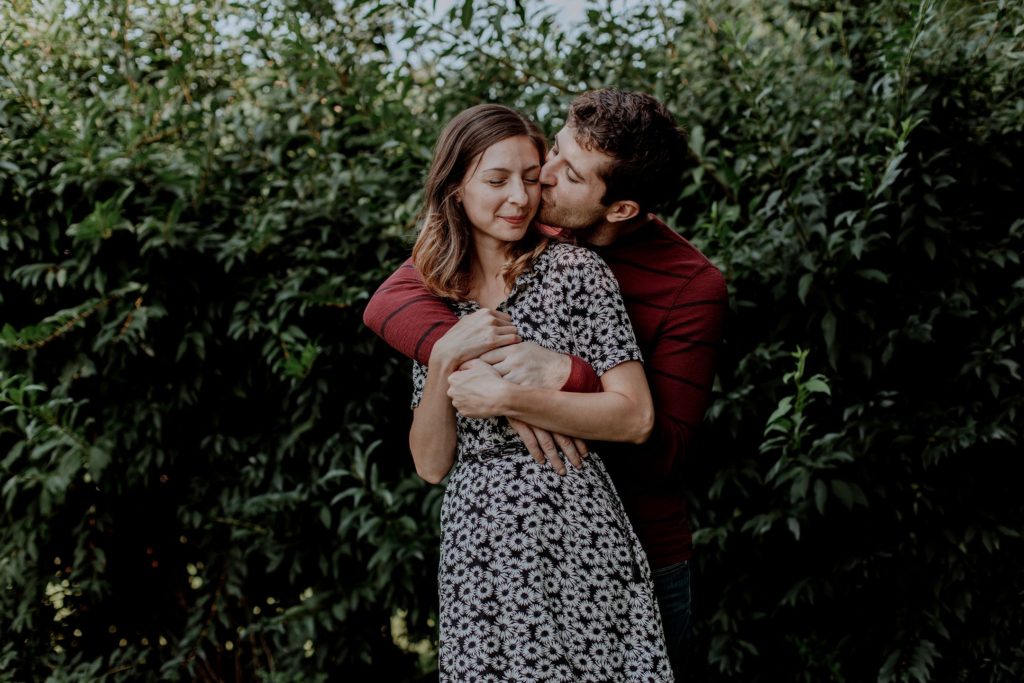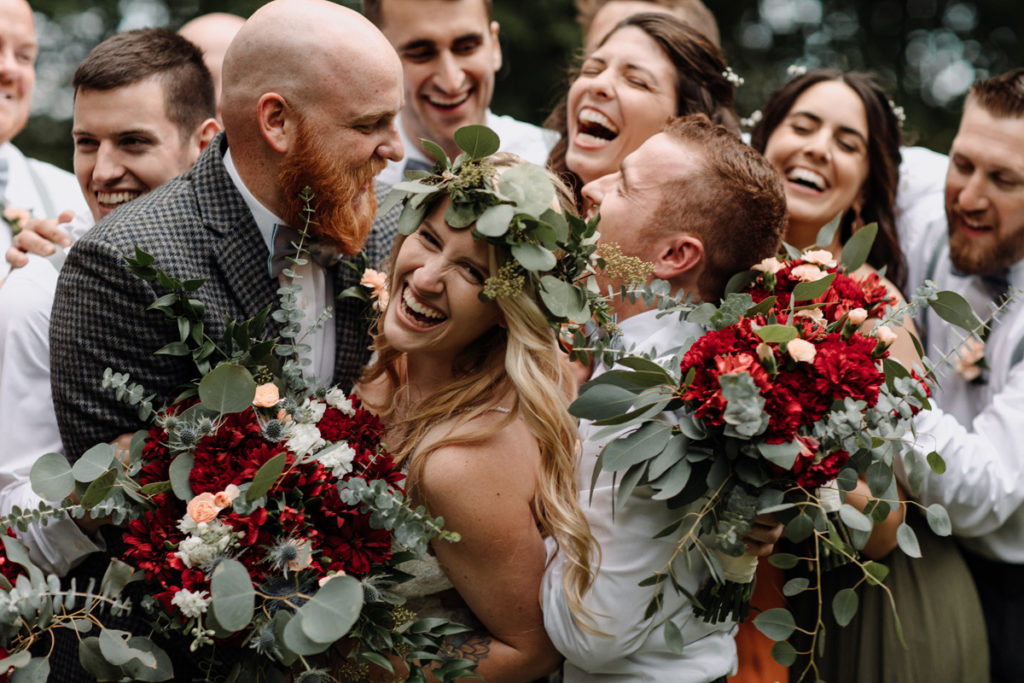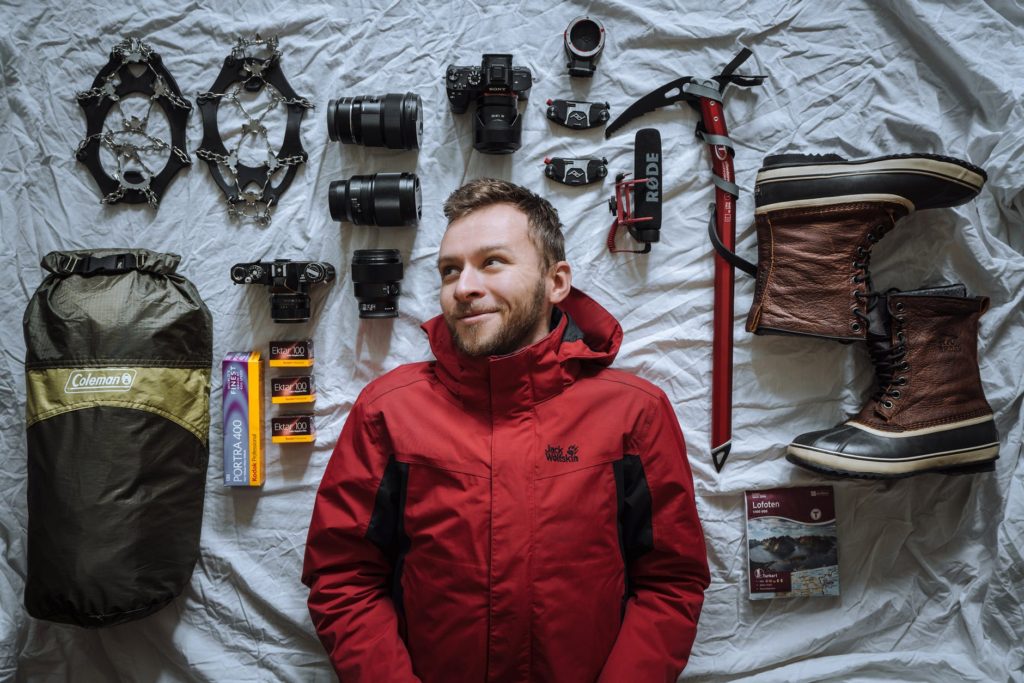Last Updated: February 14th, 2020
As I write this, I just put in my 2 weeks notice at my day job. I have worked at the same job as a Graphic Designer for 6 years now. A few years ago, I started a photography business with my husband (Chris – the other half of this blogging duo) – and through much time, effort, and perseverance, I am at this stage where I can say I will be having a full time career in photography.
I wanted to open this post by talking about this because I think it is very important. It’s important for me personally. But it’s also important for you if photography is something you are passionate about and would like to do it for a living. It’s important to hear that it is possible, and that you can live a life of your own choosing.
What Led Me Here
 Back in high school (…over 10 years ago now!), I had made decisions for my future that were significant. I decided to go the traditional college route, picking an area of study that would lead to a comfortable job. I had thought about pursuing a degree in photography but decided against it because I didn’t think it was realistic to get a job in the field.
Back in high school (…over 10 years ago now!), I had made decisions for my future that were significant. I decided to go the traditional college route, picking an area of study that would lead to a comfortable job. I had thought about pursuing a degree in photography but decided against it because I didn’t think it was realistic to get a job in the field.
I heard it back then, and you probably hear it today: “photography is over saturated.”
In my senior year of college, I landed at a great company thanks to my internship. I went straight from college to working full time 9-5 at a place close by with a comfortable salary. I had plenty of great perks, too: great coworkers, health benefits, paid time off and holidays, 401k matching, a good work/life balance. For most people – this may have been enough to be happy.
But I was not content with where I was…
Job opportunities in my area were pretty limited. I could have absolutely moved to a bigger city like Philadelphia or NYC, but those options just weren’t for me.
As fate would have it, when Chris and I got married in 2016, we took notice of how our wedding photographer worked with us and realized the potential in ourselves.
Within months, I had been getting in touch with photographers in my area. I setup meetings to just ask questions about what it’s like to be a photographer. Over time, I clicked with a few people, and started assisting and second shooting weddings. By this point, I was already getting exposed to doing photography as a job, and I actually liked it!
Flash forward to now, I’ve gone from a beginner photographer to a professional photographer with their own business. And a successful one at that!
For the rest of this post, I’m going to talk to you about some opportunities in photography, how you can get started, and weigh in on some thoughts about the future. It’ll be filled with “real talk” – looking at mistakes that have been made and challenges you can expect to face, as well as the benefits of actually making it.
What Career Opportunities Are There in Photography?
 There are many opportunities for careers in the field of photography, but not all are created equal.
There are many opportunities for careers in the field of photography, but not all are created equal.
Most photography related jobs will be entry level and low paying.
The easiest example of some of these would be working as an employee of a big box store that has a photo department like Wal-Mart. This type of role would be suitable if you’re just starting out, want to work part time, or just need some sort of income now to supplement your lifestyle.
It is definitely the case that some people see photography as a means to make some extra “beer money” – and that is totally okay!
The phrase “gig economy” has been bouncing around a lot lately and offering a photography service in some form is a way to get some work for a lot of people. Even at the start of our photography business, we hustled to make extra cash by working for other established photographers.
The higher paying opportunities will be the result of hard work.
The real heart of a photography career comes from being able to do what you love while being fairly compensated for your expertise, skill, and time.
One of the more traditional routes to go with this is to become a photography professor at a university. Teaching about photography to younger generations is a worthwhile pursuit for sure. Of course, this direction has high education level requirements – with most college professors having a Masters or PhD. Not to mention, limited positions of this nature available to fill.
Less traditional and more flexible is starting your own photography business. Most working photographers today fit into this role. You can offer photography services far-and-wide, control your pricing, and make a name for yourself while enjoying photography as an art form that people can enjoy.
It’s not an “easy” solution, but it is a worthwhile one as we have experienced.
We’ll talk to you more about this route shortly!
Create an Action Plan for Success
 With a good sense of what types of job opportunities are out there – the next step is to really lay out how you are going to take action to make it a reality for yourself.
With a good sense of what types of job opportunities are out there – the next step is to really lay out how you are going to take action to make it a reality for yourself.
The problem many of us have is that we have all these great ideas in our head, but never turn those thoughts into something real.
There have been countless times in our lives where we thought to ourselves…”I could become a photographer” but never did anything to make that thought a reality. It was only a few years ago where we transitioned from the day dream to something tangible and real.
This action plan will help you to highlight your key objectives.
A couple of the key features of a good action plan are the following things:
- Clear and realistic goals
- Choose action steps that are measurable
- Include project dates for completing certain steps
- Identify who is responsible for what
- Make notes of your successes, failures, and revisions
Examples of an Action Plan:
Below are a few examples of what your action plan could look like.
Keep in mind, these are just the start – you will need to expand on these as is appropriate. It is very much the norm, especially when pursuing bigger goals, to have to jump back in there and make revisions and add new goals along the way. That is totally normal!!
Example #1: Photographer Starting Their Own Wedding Photo Business
Main Goal: I want to create a wedding photography business that can generate a livable salary within 2 years.
[table id=3 /]
Example #2: Becoming a Photography Professor
Main Goal: I want to become a photography professor at an accredited university to share my passion for photography with younger generations.
[table id=4 /]
Related: 21 Myths of a Professional Photography Career – Explained!
How You Can Start Your Own Photography Business
 One of the big topics we love talking about on this website is merging a passion for photography with running a business.
One of the big topics we love talking about on this website is merging a passion for photography with running a business.
Our Photography Business category is chalk full of content on this topic!
While some people might see this as “selling out” because you are literally having people pay money for your art– I’ve found it to have quite the opposite effect. It’s given me the opportunity to engage with photography more frequently and in a larger variety of situations.
From shooting couples in local coffee shops to traveling out of the country to places like Iceland to photograph the beautiful scenery – it’s opened many doors I continue to be thankful for.
Having a successful photography business offers a lot of freedom to explore in ways that I was just not able to when tied down to a day job.
While no single resource can teach you everything, we’re going to highlight some of the most important things here.
8 Photography Business Tips – Detailed and With Examples
Photo Business Start Up Tip #1: Identify Your Target Market
 The most successful photographers specialize in a certain type of photography like:
The most successful photographers specialize in a certain type of photography like:
- Wedding photography
- Event photography
- Portrait photography
- Landscape photography
- Family photography
- Product photography
- Commercial photography
- Fine art photography
By homing in on a particular niche, you can target your marketing efforts specifically to people looking for this type of service.
This doesn’t mean you can’t work in different niches, though, as we do wedding photography, portrait photography, family photography, and even some landscape and commercial work.
It’s likely you already have a sense of what you want your subject(s) to be, so now it’s time to move to the next step…
Photo Business Start Up Tip #2: Incorporate Your Business
Once you’ve solidified your business plans, it’s time to make it official.
Registering your business as a legal entity like a Limited Liability Company (LLC) or Corporation provides many important things to you including:
- Legal protection of your personal assets
- Ability to register for business insurance (we recommend through Hiscox Insurance), a bank account, and a credit card
- Separation of your personal self from your business
- An ability to start tracking expenses and writing them off on your taxes
In the case of my business, I set it up as an LLC partnership with my husband. I will admit, it’s not a “fun” process – but it’s necessary to be taken seriously.
Unfortunately, many photographers make the mistake of not registering as a legal entity – and end up paying consequences as a result.
Photo Business Start Up Tip #3: Figure Out How You Will Pay for Gear and Services
 If you happen to already have the gear you need, then you can skip this tip. For the rest, this may be one of the more challenging parts of starting a photography business.
If you happen to already have the gear you need, then you can skip this tip. For the rest, this may be one of the more challenging parts of starting a photography business.
Unfortunately, camera equipment and business services are not cheap. At least, the good quality stuff you will need to help you create professional work.
I know this from first hand experience.
I mentioned in the intro to this post purchasing a Canon 5D Mark III when I started off, but there is more to that story.
I went to my husband and asked if we could buy one, so I could pursue more work in photography. Prior to this, I was using a beginner camera kit – not bad in its own right, but not high enough quality to support providing photography as a service. After talking it out, we caved in and bought one with our (limited) savings, and it served as the catalyst for us to invest heavily into our business.
Over the course of 2 years, we ended up buying thousands of dollars of gear we needed to produce the photography we wanted. We also spent quite a bit (and still do) on professional services to help manage our business and client relationships.
I mention all this because conversations on “camera gear” held on blogs like this can often feel more like sales pitches, but that’s not the goal here (though – if you buy something through one of our affiliate links, we do make a commission and will be eternally grateful). In practice, we hope you feel confident in tips like these because we have gone through it ourselves.
I’ve had plenty of breakdowns wondering if all the investing in gear would pay off, and happy to report these things have paid for themselves and then some.
The Photography Gear You Need:
There are a number of posts we’ve put together talking about photography gear.
The best starting point is our Recommended Gear pages – where we highlight the products and services we trust.
In addition, we have a growing number of complimentary resources that can help you identify the things you need such as:
- What Camera Should I Buy to Start Photography? (7 Camera Kits for Beginners!)
- Our Wedding Photography Gear Checklist – Create the Best Photos for Your Clients!
With these helpful guides – you are on the right track to determining what you need. The next step is figuring out how to afford them.
How to Approach Paying for the Products:
Our recommendation is to avoid taking out business loans or any other form of debt, as these approaches end up costing more in the long run due to interest. Not to mention, they are riskier because they will follow you as debt if something goes wrong.
The way we approached buying the things we needed was like this:
- Rent professional equipment to try it out and put it to use early on. You can use an online rental service like LensRentals.com to test out any piece of equipment you can think of without committing to making a full priced purchase. They are one of the most reputable and well reviewed companies offering this service!
Buy the things you need first. We literally listed out everything we needed and wanted, then made a list of what was highest priority and lowest. In our case, having a great camera body like the Canon 5D Mark IV (link goes to Amazon – read our review here) and a top notch portrait lens like the Canon 85mm f/1.2 (link goes to Amazon – read our review here) was most important, while we put more niche things like a macro lens on the back burner. - Invest in new equipment and services over time. You do not need to buy everything at once. Go down your priority list and make purchases gradually. Distributing the costs makes things a little easier and gives you time to make sure the gear you are buying is working for you.
- Book clients and invest your earnings into your photography service. As you book clients, you will have some guaranteed money coming in (if you are using a non-refundable retainer in your contracts). You will also have more money coming in down the line when you fulfill your project. You should use these funds to invest in your photography business as is possible. For example, when we were charging $2,000 for a wedding photography package – we would take a 50% retainer (so: $1,000) and go and buy a professional camera lens with the other 50%.
- Use personal savings (if available) sparingly and on the most essential items like a camera body and lens. The startup capital for my business came out of my own pockets. From money I saved while working at a restaurant.
- Write off your purchases as business expenses. We mentioned incorporating your business earlier, and this is one of the BEST perks. Everything you buy for your business needs – from cameras to lenses to airfare costs when you travel – can be deducted from your taxes. This allows you to save money buy not having to pay taxes on the things you purchase. Of course, you need to track all of this information throughout the year, and the best way to do it is by using Quickbooks – a bookkeeping platform that we use.
The BIGGEST MISTAKE you can make is to think you need to get everything in one go. By purchasing one piece of equipment at a time, you will get to learn how it will directly benefit your photography requirements.
We bought our necessary equipment and services only when we had money available (or it was projected to come in a future payment).
Photo Business Start Up Tip #4: Get an Online Presence
You need an online presence for your photography service. There is no way around it in the modern age.
The most important things you need are:
- A photography portfolio website
- Social media accounts like Instagram and Facebook
Fortunately, getting these set up is easy to do and very inexpensive.
We put together a few resources talking about these for you:
- How to Create Your Own WordPress Website with Bluehost
- How to Start a Blog – A Comprehensive Guide for You
I attribute our ability to grow our business to the connections we’ve made as a result of our online presence. We connect with people frequently through Instagram – with about 80% of our new clients finding us through that platform alone.
Photo Business Start Up Tip #5: Build Relationships
The first few photography business tips provided here help you to lay a stable foundation. However, those things are just the tip of the iceberg.
The single most important thing you can do to pave a way for a career in photography (whether you want to have your own studio or not) is to get well connected and have relationships.
You should aspire to form great bonds with people such as:
- Clients
- Photographers
- Related vendors
- Small businesses in your area
- Fans of your work
Having solid relationships with all types of people is not only beneficial to your business (you may receive referrals for example) but is great on a personal level. This is especially true if you want to pursue a photography business as a full time career because it’s easy to get stuck by yourself much of the time and having people you can interact with and connect with helps to make things easier and fun.
Photo Business Start Up Tip #6: Get Client Bookings
The key to having a career in photography is to do what you love, and have people want and need to work with you.
Getting bookings is simultaneously easy and difficult. The first couple of bookings are the hardest to get – and most likely you will be working at a highly discounted rate just for the experience and opportunity to build a reputation. This is totally normal!
We put together a great post all about getting your first photography client you can read here.
In our time, we view every booking to be sacred and representing that we are doing something right. There will be difficult times where you will not be booking much of anything, but I encourage you to know this happens and is to be expected, and by pushing through and enhancing your work quality, your portfolio, your marketing efforts, and so on – you can make it.
Photo Business Start Up Tip #7: Grow Your Portfolio
Your portfolio will be the lifeblood of your photography pursuits.
We host our portfolio on our website and showcase even more curated images on social media (you can find Hand and Arrow Photography on Instagram and Facebook).
Setting up the portfolio is the easy part, having enough images to share is often more difficult for those just starting out.
The best way to rapidly grow your portfolio is to go out and take pictures. Crazy, I know!
A few ways you can do this depending on your subject matter:
- Portrait Photography – enlist family and friends to have their pictures taken by you, and offer inexpensive photo services to people to for the purpose of portfolio building
- Wedding Photography – second shoot with another photographer to help them out and grow your portfolio, consider photographing styled shoots as well
- Landscape Photography – go and take pictures of jaw dropping landscapes!
- Real Estate Photography – contact realtors and offer to take photos of houses, and consider photographing your own house and those of friends/family as an example
Ultimately – your portfolio should be about quality of work instead of quantity.
Photo Business Start Up Tip #8: Price Yourself to Live
The last big step you will need to take in order to run a photography business as a career is increasing your prices.
When Chris & I started off, we practically gave our services away for free. Our first wedding was booked for $500 dollars and included 2 photographers, full day coverage (ended up being around 14 hours + travel time), and an engagement shoot – 3 hours away.
As we grew, and demand has gone up for our services, we’ve steadily increased our prices. This has allowed us to transition from doing photography as a side hustle to making it a full time career.
While other aspects of starting a business may be more difficult, this is probably the one that is the most scary.
There are plenty of people who will hire a cheap photographer.
But, I can tell you there are also plenty of people willing to spend good money on a great photographer, too.
The combination of a great portfolio, a solid reputation, the right gear for the job, and a positive personality can all translate into: successful photography business owner.
If you want to read more about starting your own photography business, check out these great resources we’ve put together:
If there is something you’re still wondering about having a career in photography, ask away in the comments!
The Future of Photography as a Career – Discussion
 For this final segment of this post on photography as a career choice, I want to talk about what the future will look like. After all, the world has seen booms in some industries that have then fallen by the wayside as they’ve been replaced by new alternatives. For sure, I would not want to recommend photography as a career choice to you if I didn’t feel it was a viable way to live in the long term.
For this final segment of this post on photography as a career choice, I want to talk about what the future will look like. After all, the world has seen booms in some industries that have then fallen by the wayside as they’ve been replaced by new alternatives. For sure, I would not want to recommend photography as a career choice to you if I didn’t feel it was a viable way to live in the long term.
The photography industry is HUGE.
While some projections, such as those by the US Bureau of Labor Statistics (source), see careers in photography to decrease dramatically over the next decade (by 6%) – this doesn’t paint a full picture.
What is happening in the world of photography is a movement away from paid full time jobs to using freelance photographers.
This is why we emphasize throughout this post today going the route of starting your own business – as it will give you the most long term potential.
In addition, photography has become more accessible than it has ever been.
For example, in the wedding photography industry, some clients are hiring dirt cheap photographers to take their pictures on budget equipment, low levels of experience, and so on.
As frightening as these things might sound, they are actually realities for virtually any industry today.
The availability of full time work in most industries is limited – with even large corporations in finance, retail and health care opting to hire temporary employees instead of full time. This is a significant change as even 20-30 years ago, full time employment with a good salary and benefits could be achieved even by people with low levels of skill and education.
As it stands, it is my opinion that photography will be around for a long time. People will always want great photographs for a variety of purposes. Be it to capture memories at an event, capture headshots to use on professional websites, and so on.
No doubt, some roles that were once pivotal like photo journalists working for the New York Times or National Geographic will go by the wayside. There may be a few – but they will be in high demand and quickly filled. But, in most other facets of the photography industry, a viable career is possible to achieve.
You just need to be willing to make it happen!
Conclusion
If you want to make photography your career, there are so many opportunities to make it happen. I don’t promise it will be easy, but most great career choices aren’t. But, it will be worth it.
My husband and I are “normal” people. We went the traditional route – and discovered it wouldn’t work out for us. We took the gamble on making photography our lifestyle and career, and now get to reap the successes.
If you really want a career in photography, I wish you the best and hope you’ll stick around to follow our blog as we continue to talk about the great topics related to photography and business you should know about.
Joining our mailing list is the easiest way to get these updates, just fill in your email address and name below to get started:
[mc4wp_form id=”1188″]